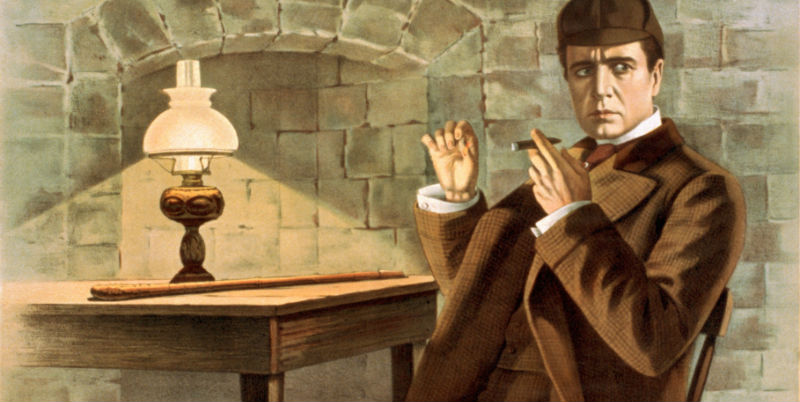Sherlock Holmes famously has no truck with the supernatural. “This agency stands flat-footed upon the ground, and there it must remain,” he has said. “No ghosts need apply.” Even when confronted with what appears to be a paranormal phenomenon, whether a glowing hellhound on Dartmoor or the depredations of a vampire in Sussex, the great detective invariably hypothesizes—and proves—a mundane explanation.
Yet in numerous cases throughout his long and storied career Holmes has encountered the truly weird and uncanny, and not in every instance has he been able to dispel mystery by shedding the hard light of rationality upon it.
At the risk of blowing my own trumpet (and you’ll have to forgive me, but I am, in part, writing this piece to do just that) several of the Holmes pastiches I myself have authored contain elements which fall into the supernatural category. I have also written a trilogy, The Cthulhu Casebooks, which posits that the canonical Holmes adventures we all know about through Dr Watson’s writings are a fraud, disguising an altogether more unsettling truth. Holmes’s entire career, these three books reveal, was actually spent tackling threats from other dimensions and all-powerful beings from beyond space and time, at the cost of his health and indeed his sanity. The stories Watson published were sanitized accounts, stripped of their otherworldly aspects so as to make them palatable to the general public.
The work of H.P. Lovecraft is intertwined with the work of Conan Doyle in The Cthulhu Casebooks, and for me the great attraction of mashing up these two fictional worlds is their seeming irreconcilability, the clash of opposites. Holmes’s rationality and the utter irrationality of the beings and situations conjured up by Lovecraft provides fertile soil. How does an empirical mind like Holmes’s handle things for which there is no straightforward explanation? How can he bring his formidable talents to bear on events that defy logic?
I like to think that once Holmes has come to an acceptance of the existence of the supernatural, however grudgingly, he might approach it as he would any other problem. It’s nothing that cannot be solved by brainpower, reason, and perhaps recourse to the altered states brought on by pharmaceutical stimulation. His methods may have to be adjusted to meet this new paradigm, but his thirst to see justice done and evildoers punished remains unchanging and unquenchable.
But I’m not alone in pitting Sherlock Holmes against the uncanny, the magical, the occult, and the inexplicable, as the works cited below will show.

“The Adventure of the Creeping Man,” Sir Arthur Conan Doyle
Let’s start with “The Adventure of the Creeping Man” by Holmes’s creator himself, Sir Arthur Conan Doyle. In this Gothic tale, Holmes and Watson meet aged Professor Presbury, who has taken a drug which purports to restore the vitality of youth but has the side-effect of regressing him to a primordial, ape-like state. Although science is to blame for the professor’s condition, it is science of the most fantastical kind.

Dr. Jekyll and Mr. Holmes, Loren D. Estleman
A similarly fantastical science lies behind Loren D. Estleman’s Dr. Jekyll and Mr. Holmes, in which Holmes investigates the grisly misdeeds of a certain Mr Hyde and his connection to a respectable London medic (not Watson). One might argue that the fates of Jekyll and Presbury are not dissimilar: the bestial side of each is brought to the fore by means of a chemical potion, with tragic consequences.
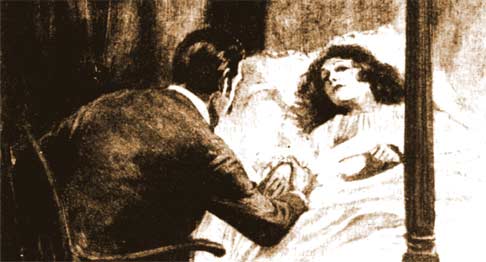
Sherlock Holmes vs. Vampires
As we know, the so-called Sussex vampire turns out to be, in fact, a concerned mother who saves her infant child’s life by sucking poison from a wound. However, Holmes has encountered real vampires on several occasions, including the most celebrated and fearful of them all, Count Dracula. For details, see Séance for a Vampire by Fred Saberhagen, Sherlock Holmes Vs. Dracula by the aforementioned Estleman, and The Tangled Skein by David Stuart Davies.
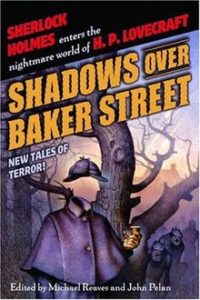
Shadows Over Baker Street, edited by Michael Reaves and John Pelan
This anthology assembles tales by a score of authors in which Holmes, as in my Cthulhu Casebooks trilogy, comes up against the alien gods and cosmic horrors of H.P. Lovecraft’s Cthulhu mythos. That dread tome the Necronomicon features here, as do all manner of nether-demons and cursed artifacts. The collection is perhaps best known for Neil Gaiman’s Hugo-winning “A Study in Emerald,” which hinges on a cunning twist.
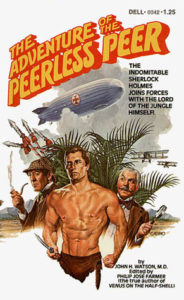
The Peerless Peer, Philip José Farmer
In The Peerless Peer, Holmes and Watson travel to Africa and join forces with Lord Greystoke, more familiarly known as Tarzan of the Apes, in order to defeat a German germ-warfare plot. While not strictly a supernatural character, Tarzan’s exploits have always carried a whiff of fantasy. That’s in evidence in this tale when our heroes come under attack from a swarm of killer bees, which Holmes foils using his extensive knowledge of apiculture.
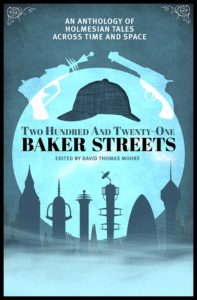
Sherlock Holmes vs. Other Realities
Two Hundred and Twenty-one Baker Streets is an anthology of stories which displace Holmes from his usual milieu of late-Victorian London and transplant him to other worlds, alternate realties and different eras. Similarly The Improbable Adventures of Sherlock Holmes pits the sleuth against spectres, dinosaurs, crop circles, even extraterrestrials, while the Gaslight series (four volumes so far: Gaslight Grimoire, Gaslight Grotesque, Gaslight Arcanum and the forthcoming Gaslight Gothic) positively ooze with eldritch sinisterness.
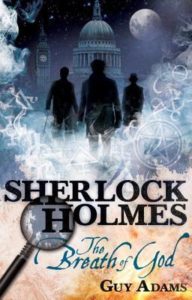
The Breath of God, Guy Adams
Guy Adams’s The Breath of God sets Holmes and Watson on the trail of an intangible killer. In pursuit of their quarry they enter into an uneasy alliance with a trio of literary occult investigators––Algernon Blackwood’s John Silence, William Hope Hodgson’s Carnacki, and Julian Karswell from M.R. James’s “Casting the Runes”––alongside real-life practitioner of the dark arts, Aleister Crowley.

Sherlock Holmes’ War of the Worlds, Manly Wade Wellman and Wade Wellman
Even people not blessed with extraordinary powers of logical analysis may be able to infer from its title that Sherlock Holmes’s War of the Worlds involves the Martian invasion chronicled elsewhere by H.G. Wells. In this novel, co-written by Manly Wade Wellman and his son Wade Wellman, another Conan Doyle character, Professor Challenger, plays a prominent role in the proceedings.
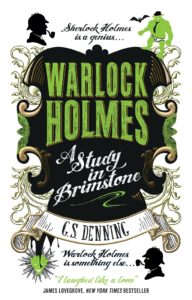
Warlock Holmes, G. S. Denning
Putting a comic spin on the “supernatural Holmes” subgenre is G.S. Denning’s Warlock Holmes series, in which Holmes is a none-too-bright wizard inhabited by the spiritual essence of Professor Moriarty and uses magic, rather than intellect, to solve crimes. Watson aside, all his principal allies are non-human: Inspector Lestrade a vampire, Inspector Gregson an ogre, the Baker Street irregulars were-rats.

